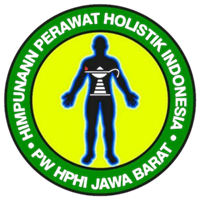Nursing Profession in Times of War and Humanity: Insights from Siti Rufaidah's Legacy
DOI:
https://doi.org/10.56359/gj.v4i2.310Keywords:
humanitarian, islamic, nursing, siti rufaidah, professionAbstract
In armed conflicts, innocent people are often the victims of violence and brutality. War not only destroys infrastructure and the environment, but also destroys human morals and ethics. However, there are several humanitarian principles that must be upheld. These principles are set out in the Geneva Conventions and Additional Protocols, which form the basis of international humanitarian law. However, in reality there are still many countries that violate these principles. Violence and abuse against civilians, prisoners of war, and the injured continue to occur in many conflicts around the world. Nurse is a health profession that has an important role in war. They work on the front lines to provide medical care to victims of conflict, including military troops, prisoners of war, and civilians injured or sick as a result of the conflict. Nurses performed a variety of tasks during war, including treating patients with gun wounds, preparing medical equipment, taking blood samples for diagnosis, and providing psychological assistance to patients traumatized by the conflict. In the history of Islam and world civilization, many wars occurred during the time of the Prophet Muhammad (PBUH). Siti Rufaidah was one of the well-known nurse figures at that time and was often present in providing medical assistance to war victims. One of the proofs of her patentability in the world of nursing is during the Khandaq war. Siti Rufaidah at that time treated Sa'ad bin Muadz who was injured by an arrow until his condition stabilized and improved. The presence of Siti Rufaidah has had a huge impact on the development of the nursing profession in the Islamic world, and even today. She is a role model for Muslim nurses around the world.
Downloads
References
Adnan, R. A. R., Mutalib, M. A., & Aziz, M. R. A. (2021). Waqf-based And Other Social-based Healthcare In Malaysia: A Conceptual Comparison. Journal of Business Innovation, 6(1), 49.
Alispahic, B. (2021). Special War and Terrorism. Technium Soc. Sci. J., 17, 444.
Almalki, M., FitzGerald, G., & Clark, M. (2011). The nursing profession in Saudi Arabia: An overview. International Nursing Review, 58(3), 304–311.
Anushiem, M. I., Ugwu, M. O., & Onwugbenu, O. E. (2021). International Humanitarian Law and the Abuse of Human Rights Law in the Light of Recent Security Challenges in Nigeria. LASJURE, 2, 97.
Ashri, M. (2019). Reconciliation of Humanitarian Law and Human Rights Law in Armed Conflict. Hasanuddin Law Review, 5(2), 209–219.
Bodrick, M. M., Almutairi, M. B., Alsolamy, F. S., & Alfayyadh, H. M. (2022). Appraising Rufaidah Al-Aslamia, First Muslim Nurse and Pioneer of Islamic Nursing: Contributions and Legacy. Jurnal Keperawatan Indonesia, 25(3), 113–126.
Bouchet-Saulnier, F. (2019). International law for healthcare workers. In Oxford Handbook of Humanitarian Medicine. Oxford University Press.
Ganz, F. D., Margalith, I., Benbenishty, J., Hirschfeld, M., Wagner, N., & Toren, O. (2019). A conflict of values: nurses’ willingness to work under threatening conditions. Journal of Nursing Scholarship, 51(3), 281–288.
Goniewicz, M. (2013). Effect of military conflicts on the formation of emergency medical services systems worldwide. Academic Emergency Medicine, 20(5), 507–513.
Lourenço, M. B. C., Pinto, C. M. I., Silva, O. C. da, Lourenço, L. H. S. C., Paes, G. O., & Oliveira, A. B. de. (2017). The inclusion of Brazilian flight female nurses in the second world war: challenges and achievements. Escola Anna Nery, 21.
McGoldrick, C. (2015). The state of conflicts today: Can humanitarian action adapt? International Review of the Red Cross, 97(900), 1179–1208.
Shamia, N. A., Thabet, A. A. M., & Vostanis, P. (2015). Exposure to war traumatic experiences, post‐traumatic stress disorder and post‐traumatic growth among nurses in Gaza. Journal of Psychiatric and Mental Health Nursing, 22(10), 749–755.
Teferra, Z. M. (2016). National security and the right to liberty in armed conflict: The legality and limits of security detention in international humanitarian law. International Review of the Red Cross, 98(903), 961–993.
Downloads
Published
How to Cite
Issue
Section
License
Copyright (c) 2023 Henri Setiawan, Suhanda Suhanda

This work is licensed under a Creative Commons Attribution 4.0 International License.















